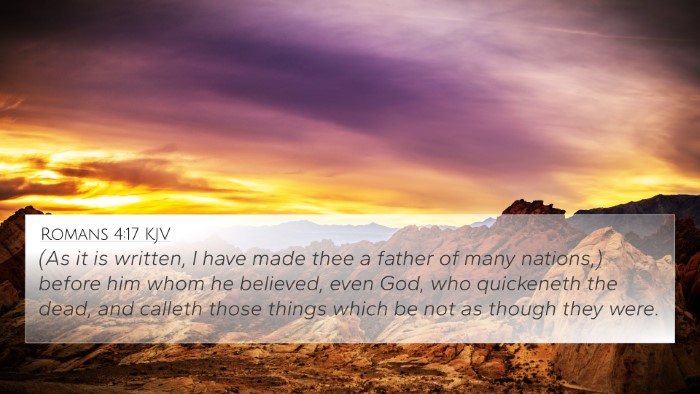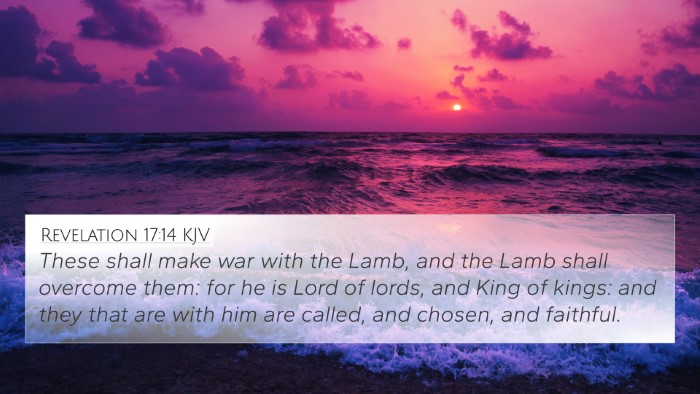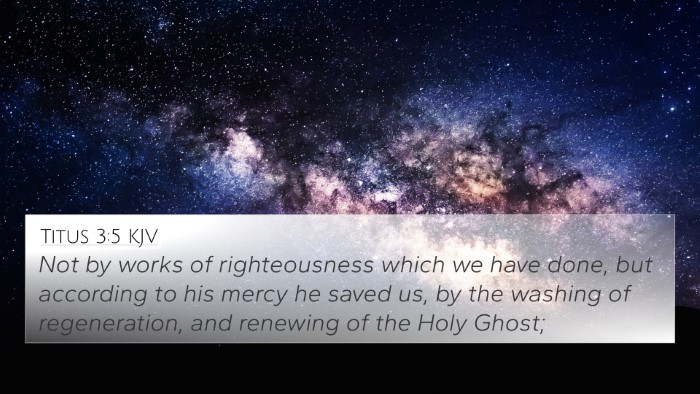Understanding Romans 9:11
Bible Verse: Romans 9:11 - "For the children being not yet born, neither having done any good or evil, that the purpose of God according to election might stand, not of works, but of him that calleth."
This verse delves into the divine sovereignty and the doctrine of election, indicating that God's purpose and choice are not based on human actions or merits but on His own will and plan. Below is a comprehensive overview of the verse’s meaning, utilizing insights from respected public domain commentaries.
Commentary Insights
The insights from Matthew Henry, Albert Barnes, and Adam Clarke highlight several key themes:
-
God's Sovereign Choice:
According to Matthew Henry, this verse underscores the principle that God’s decisions regarding salvation and election are independent of human actions. The fact that the children had not yet been born signifies that their fate was determined before any deeds were performed, emphasizing divine sovereignty.
-
The Purpose of Election:
Albert Barnes elaborates on the purpose of God’s election, asserting that it serves a greater divine purpose beyond human comprehension. This election is rooted in God's grace rather than human actions or merits, reinforcing the idea that salvation is a gift from God.
-
Implications of Good and Evil:
Adam Clarke points out that the mention of "neither having done any good or evil" signifies the impartiality of God’s election. It serves as a reminder that genuine merit or demerit does not influence God's choices. This challenges human notions of fairness and justice, highlighting God’s unique nature in His governance of the world.
Bible Cross References
To deepen the understanding of Romans 9:11, consider the following cross-referenced Bible verses that echo similar themes of divine sovereignty and election:
- 2 Timothy 1:9: "Who hath saved us, and called us with an holy calling, not according to our works, but according to his own purpose and grace."
- Ephesians 1:4-5: "According as he hath chosen us in him before the foundation of the world, that we should be holy and without blame before him in love: having predestinated us unto the adoption of children by Jesus Christ to himself, according to the good pleasure of his will."
- Romans 8:29-30: "For whom he did foreknow, he also did predestinate to be conformed to the image of his Son... moreover whom he did predestinate, them he also called."
- Galatians 1:15: "But when it pleased God, who separated me from my mother’s womb, and called me by his grace."
- Isaiah 43:7: "Even every one that is called by my name: for I have created him for my glory, I have formed him; yea, I have made him."
- John 15:16: "Ye have not chosen me, but I have chosen you, and ordained you, that ye should go and bring forth fruit."
- 1 Thessalonians 1:4: "Knowing, brethren beloved, your election of God."
Connections Between Bible Verses
This verse not only stands alone but also connects intricately with various other scriptures that delve into the nature of God's choice and grace. These connections emphasize the overarching biblical theme of divine election and grace throughout both the Old and New Testaments.
Thematic Bible Verse Connections
The themes of predestination and God’s sovereign choice resound through many passages, offering a robust framework for understanding Romans 9:11. The narrative of Jacob and Esau's election serves as a foundational illustration of divine choice, seen in:
- Genesis 25:23 - "And the LORD said unto her, Two nations are in thy womb..."
- Malachi 1:2-3 - "I have loved you, saith the LORD. Yet ye say, Wherein hast thou loved us? Was not Esau Jacob's brother? saith the LORD: yet I loved Jacob, and I hated Esau..."
Tools for Bible Cross-Referencing
To thoroughly explore similar themes in Scripture, one can utilize various tools for Bible cross-referencing, including:
- Bible Concordance: A reference tool that helps find the occurrence and context of words within the scriptures.
- Bible Cross-Reference Guide: A systematic way to identify parallel verses and related themes.
- Cross-Reference Bible Study: A method of studying the Bible that highlights interconnected themes and verses.
Conclusion
The exploration of Romans 9:11 provides a profound insight into the doctrine of election and the character of God as sovereign and gracious. Understanding this passage within the broader context of scriptural teachings illuminates the importance of grace in the Christian faith, encouraging believers to acknowledge the divine plan that governs salvation.
























